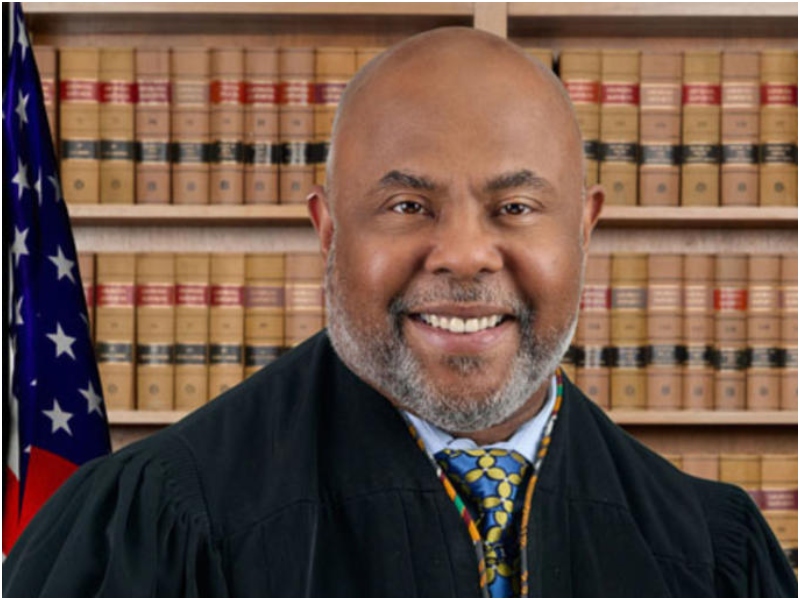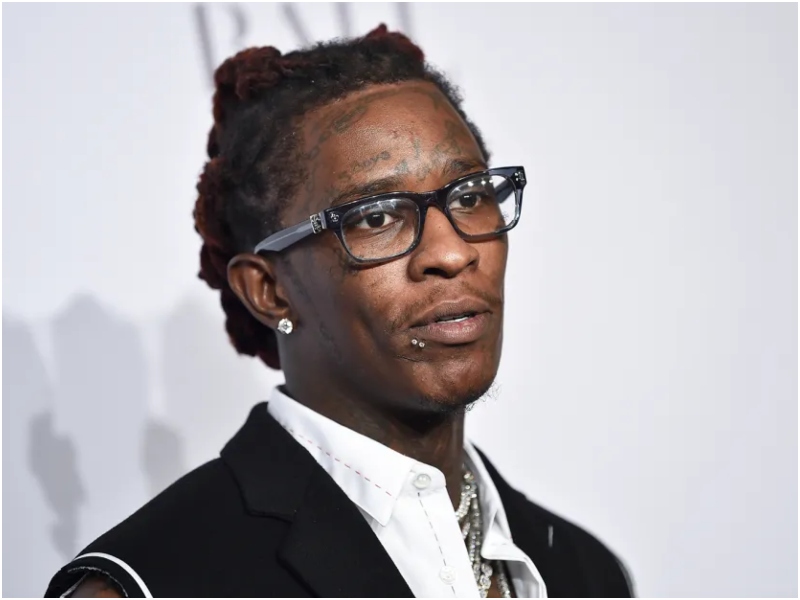The ongoing racketeering and gang conspiracy trial against rapper Young Thug and five associates in Atlanta, Georgia, has been paused indefinitely due to allegations of misconduct by Fulton County Superior Court Judge Ural Glanville.
This trial, which has already become the longest criminal trial in Georgia’s history at 18 months, faces further delays pending a decision on whether Judge Glanville should recuse himself from the case.
Allegations of Judicial Misconduct
The suspension follows accusations from defense attorneys that Judge Glanville held a secret meeting with prosecutors and key witness Kenneth Copeland.
The defense claims this meeting was intended to pressure Copeland to testify, arguing that such actions were improper and unconstitutional.
In response, Judge Glanville made the hearing public and initially announced plans to release the full transcript of his meeting with Copeland. However, he later reversed this decision and referred the recusal motions to another judge.
Contempt of Court and Previous Delays
Young Thug’s lead attorney, Brian Steel, had previously questioned Judge Glanville about the meeting.
When Steel refused to disclose his source, he was found in criminal contempt and sentenced to 20 weekend days in jail.
Additional disputes over Copeland’s testimony and evidence issues have further delayed proceedings, with jurors last hearing testimony on June 17.
Today marks the 100th day of trial proceedings since opening statements.
Lengthy Trial and Continuing Challenges
The trial has been plagued by various issues, including a protracted jury selection process that lasted 10 months.
Shortly after the trial commenced in late November, another delay occurred when co-defendant Shannon Stillwell was stabbed in jail and hospitalized.
Despite these setbacks, prosecutors have yet to present half of their projected witness list, which includes over 200 people, and the trial is now expected to extend into 2025.
Charges and Defense Arguments
Young Thug faces multiple charges based on allegations that he led the Young Slime Life (YSL) gang, which purportedly has ties to the national Bloods organization.
Prosecutors argue that YSL operates with Young Thug as its leader, aiming to dominate the Atlanta area.
In contrast, the defense maintains that YSL is merely a record label, with its artists engaging in fictional accounts of criminal life as part of their music.

Controversial Use of Rap Lyrics as Evidence
The judge has allowed prosecutors to use song lyrics as evidence, a method that has drawn criticism from legal analysts.
This practice continues a controversial trend of using rap lyrics in criminal prosecutions, with potential significant implications for the defendants, who could face decades in prison if convicted.
Implications for the Future
The indefinite suspension of the trial raises questions about the future of the case and its impact on the legal treatment of rap music and artists.
The defense’s claims of judicial misconduct and the ongoing delays highlight the complexities and challenges of this high-profile case.

